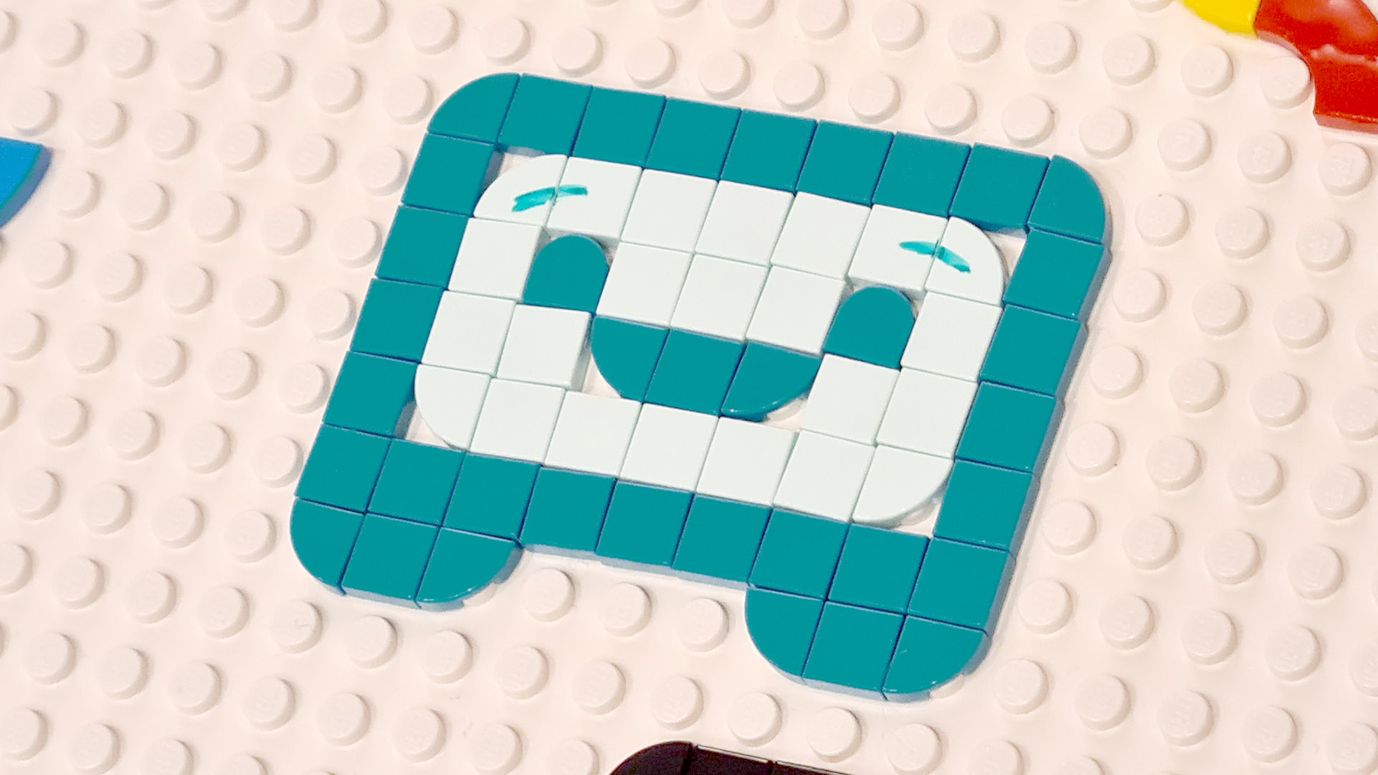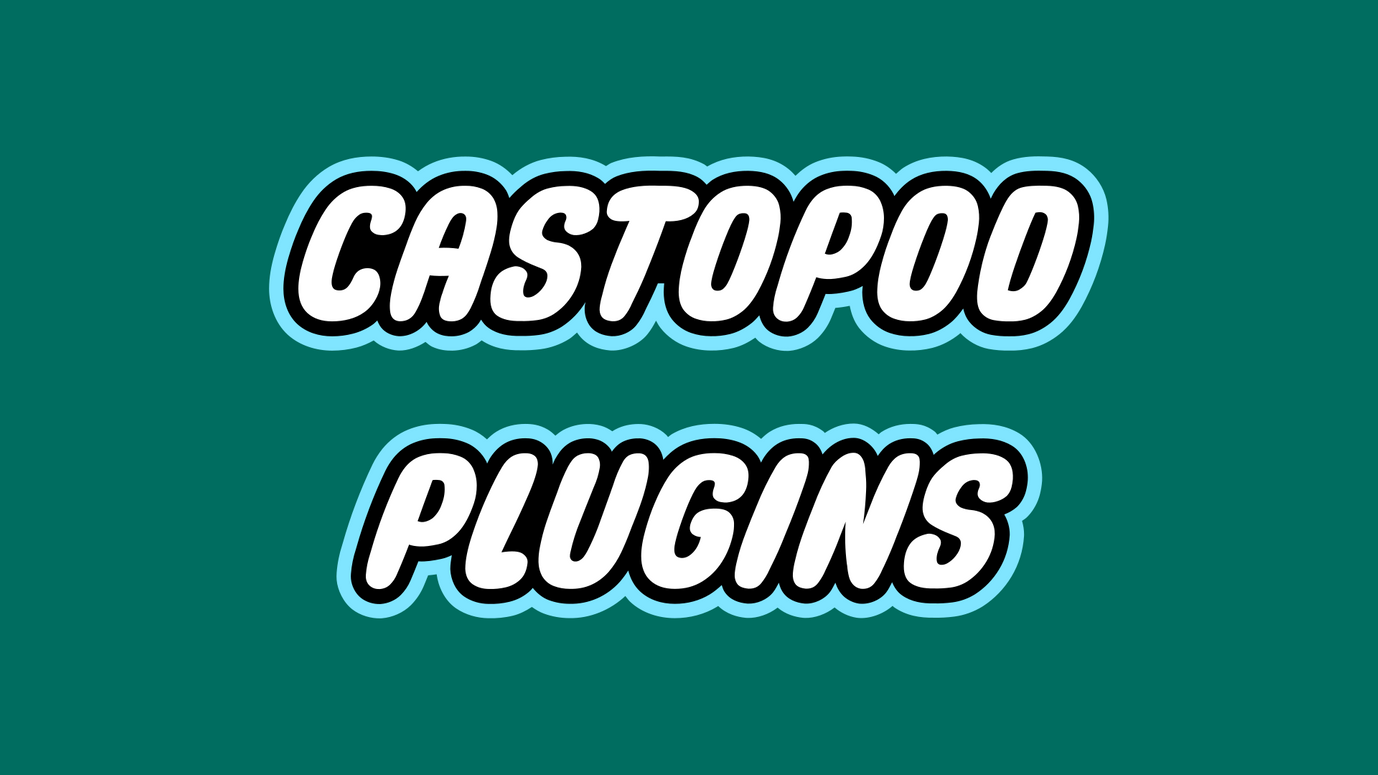
How podcasting will save the open Web and free speech
Podcasting has been a major “open web” actor for almost 20 years. Its openness is now under attack.
While podcasting's contents and audiences have finally reached maturity, the industry revenue stream barely registers.
It is changing now.
Podcasters all over the world are starting to make a living out of their production thanks to new ways of monetizing.
But now is the moment when they have to choose their path and make a choice between the open and the closed Web.
In the begining…
Decades ago, when the Internet and the “World Wide Web” were still young, everything was open, connected and interoperable by design.
Any client software could connect to any server – as long as it could speak the same language.
The Web was free. Free as in “free speech”: there were no barrier. And free as in “free beer”: it was OK not to make money out of it.
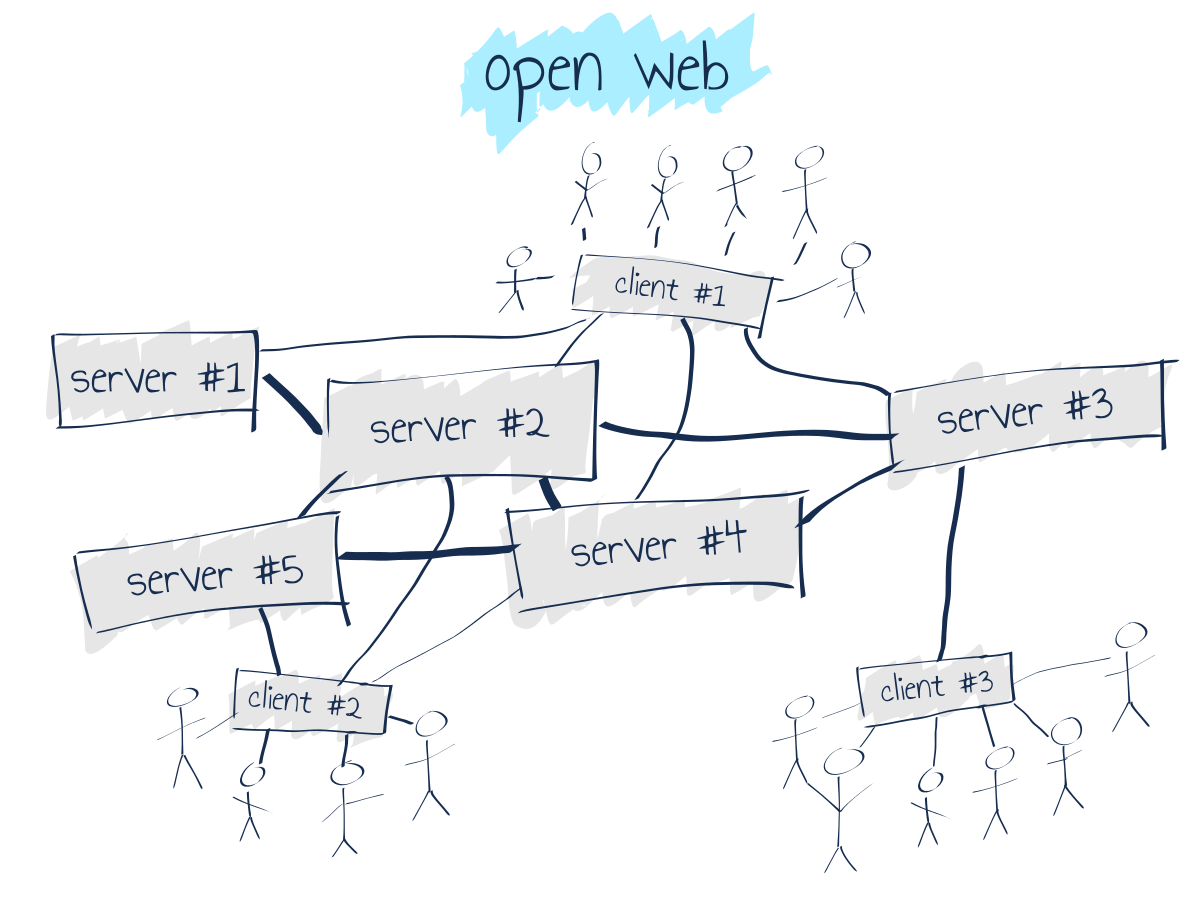
The Y2K “bug”
After the year 2000 we started to see new platforms emerging that offered content creators new ways to earn money.
Youtube is probably the most famous one: it created a new ecosystem and a new market that did not exist before. It allowed thousands of artists to get a sustainable income from their videos.
But the price to pay to get a seamless experience and access to all the tools artists need was to lock themselves into a closed silo.
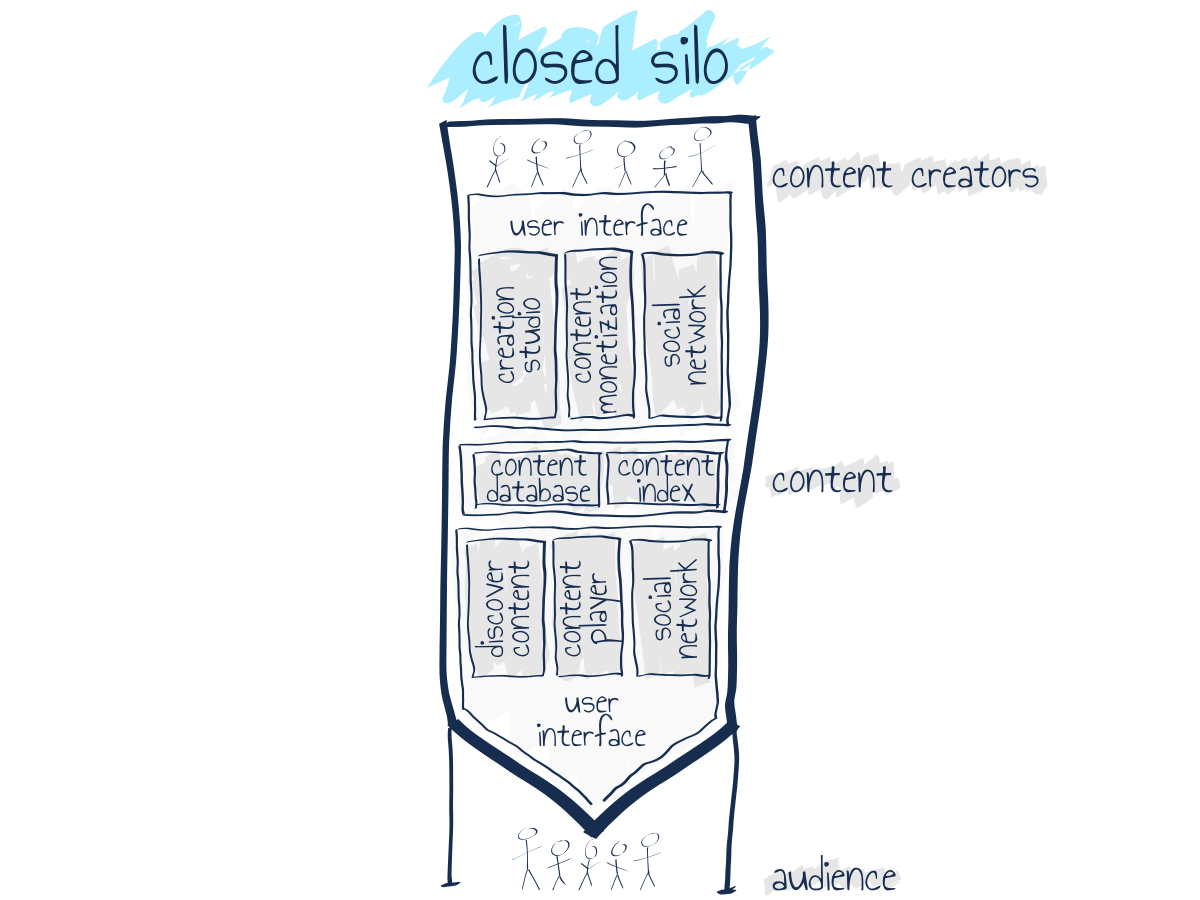
Piece by piece, we saw the Web becoming a place for closed platforms.
For instance, when you are on Facebook, you are no longer on the Web (you just use its pipes): you are on Facebook. Facebook is a tremendous communication system. But it was one of the first to provide sealing as a feature. A Facebook message can be seen, read and answered only from Facebook software.
This was brand new: phone calls, SMS, e-mails, all these can be read and answered from any equipment that is compatible.
Now there is no compatibility between platforms on the “Closed Web”. It is locked down.
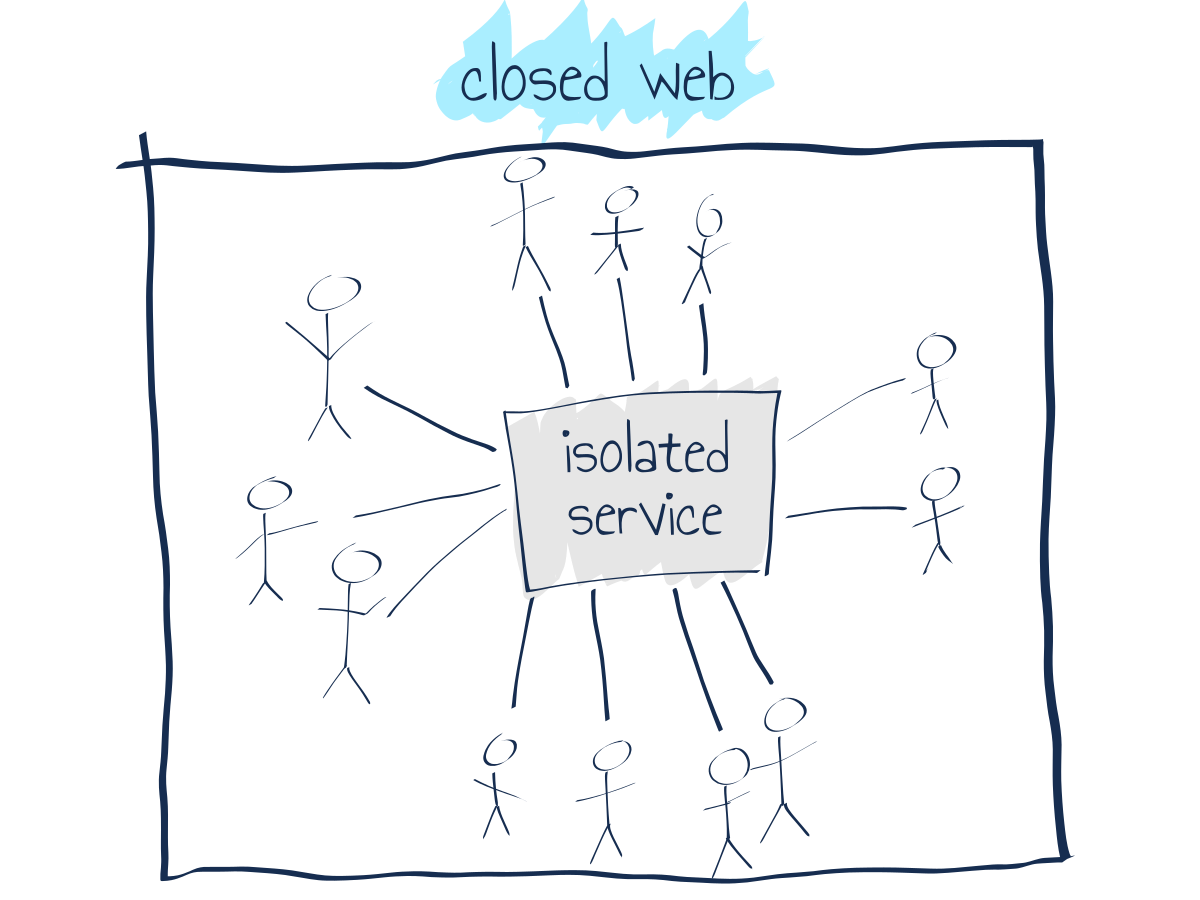
Of course reality is not so clear-cut: as long as you understand the limits and agree with the terms and conditions, there is no problem. The Web, closed or open, is a free country!
Problems occur when you are facing a monopoly. If you disagree with the terms and conditions, for legitimate reasons or not, there is nowhere else to go. You are muzzled.
Fortunately, decentralized networks came back with a vengeance.
Decentralized networks allow interactions the way they were originally designed for the Web. They use old formats – such as RSS – or new ones – such as ActivityPub.
They share a common rule: anyone can talk to anyone (unless they decide not to). This is Interoperability.
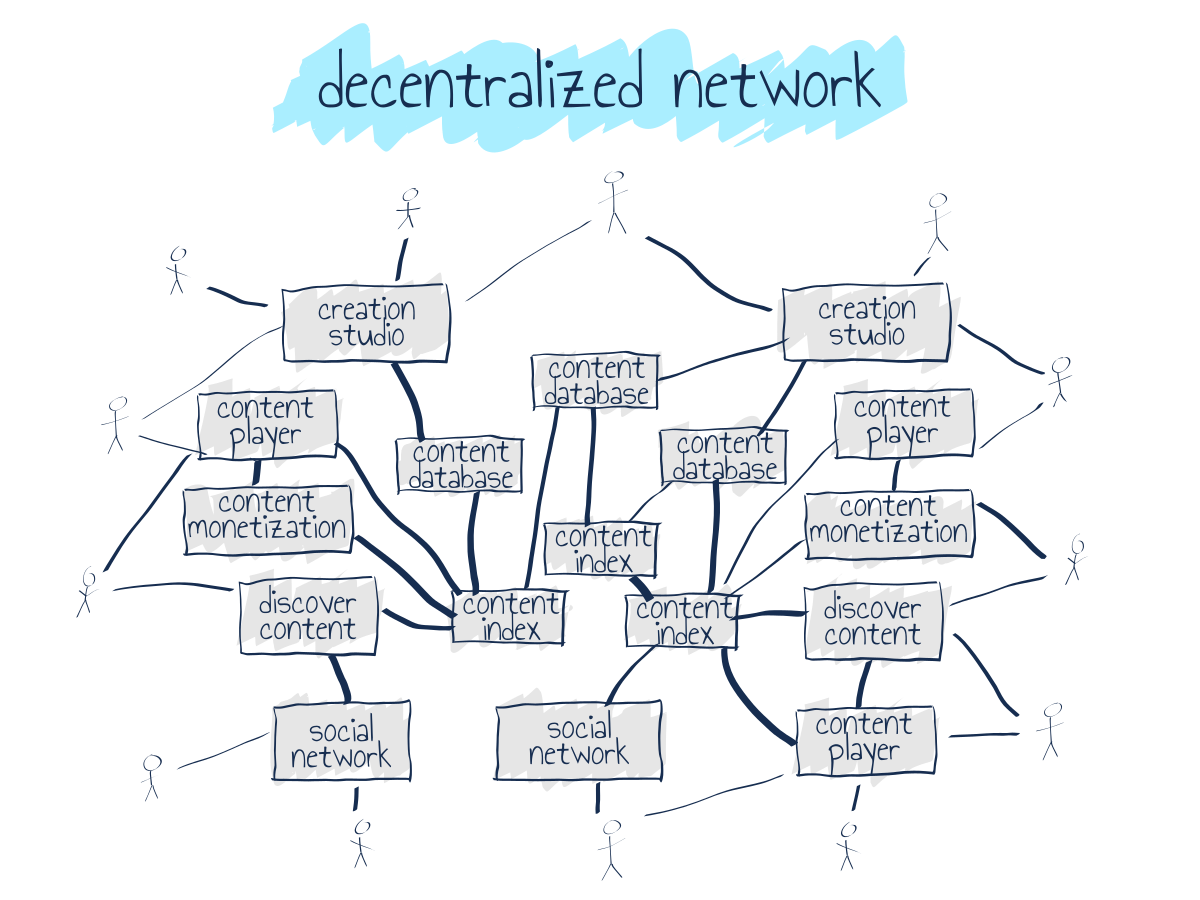
In order to make things clear, here is, in a nutshell, what may influence your content:
| On the open Web (federated network, self hosted…) |
On the closed Web (Youtube, Apple, Facebook…) |
|---|---|
| The law | The law |
| Terms and Conditions | |
| Economic, political and ideological interests specific to the platform | |
| Government pressure on the platform | |
| Mass reporting of my content by opponents or competitors | |
| A bot | |
| A moderator in a bad mood | |
| Platform shutting down | |
| … |
(Adapted from @louisderrac's tweet)
Back to podcasting
Because podcasting has not evolved for two decades, it is still heavily decentralized. You may host a podcast anywhere and listen to it on any application you like.
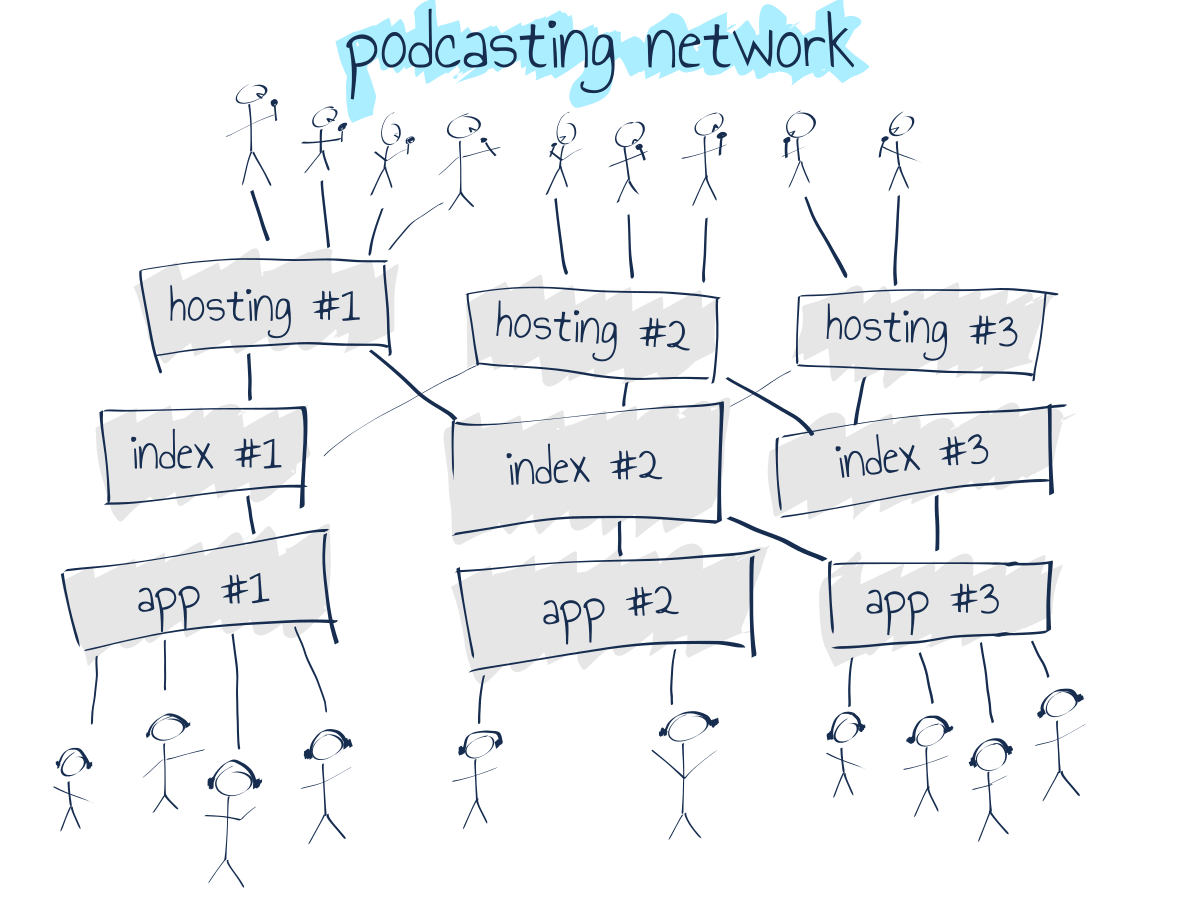
This has two consequences:
- It is still open, as the Web was in the 90's.
- It is not easy to make money out of it.
Podcast monetization solutions fall into two categories:
- closed Web ones,
- open Web ones.
Apple recently launched a solution which allows podcasters to monetize their content by selling yearly subcriptions to their audience.
“Do not worry about anything, Apple will take care of everything.”
What about your listeners who were not using Apple Podcast? They are locked out. Either they are lost forever or they must switch to the Apple platform.
The same story is taking place on Spotify where some podcasts are no longer available outside the platform.
Is a closed silo necessary in order to create value? Of course not. A closed silo is not the only answer, there are many other ways that keep things open and decentralized.
PodcastIndex.org (a collective that campaigns for preserving podcasting as a platform for free speech) has brought more open innovations to podcasting in the past 6 months than Apple did in 15 years:
- The Lightning Network to allow listeners to stream money directly to the podcasters – and to anyone who was involved in the creation process, even to the app developers,
- WebMonetization is another way of earning real money from your audience,
- A Donation/Funding system,
- Many other cool and interoperable features (transcripts, chapters, soundbites, location, trailer, license, alternate enclosure…).
And of course you can still make money with several types of advertisement:
- Host read (the host himself reads an ad),
- Dynamic audio ad insertion (an ad server between the podcast hosting server an the listeners automatically inserts audio ads),
- Displayed ads (the podcast app displays ads),
- Listen-to-click contextual monetization (an audio ad points to a displayed ad).
The open web is not complex or ugly. Whether you are a publisher, a podcaster, a journalist or simply an audience member, you deserve to own your content and broadcast it to whomever may like it.
Do not surrender to the closed Web!
Here are a few things you can do to keep podcasting open:
- Pick a hosting platform that grants you the freedom you need.
- In your shows, stop advertising for big closed solutions: instead, tell your audience to switch to podcast software that brings real innovation.
- As a listener, try and use open applications. You may very well be pleasantly surprised!
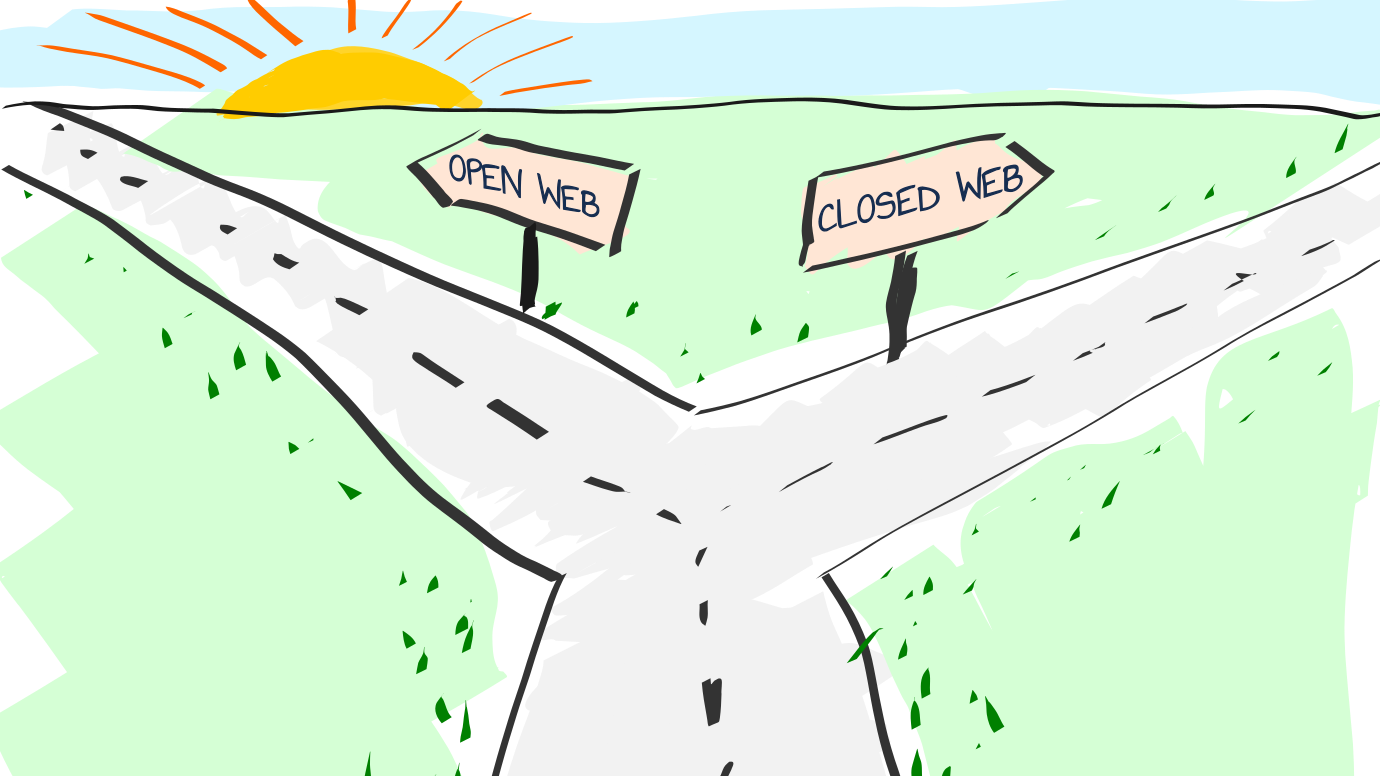
If you want to hear more about this, Anthony Gourraud invited me on his show “Des Ondes VOcast” to talk about this article:
Photo by Benjamin Bellamy.


